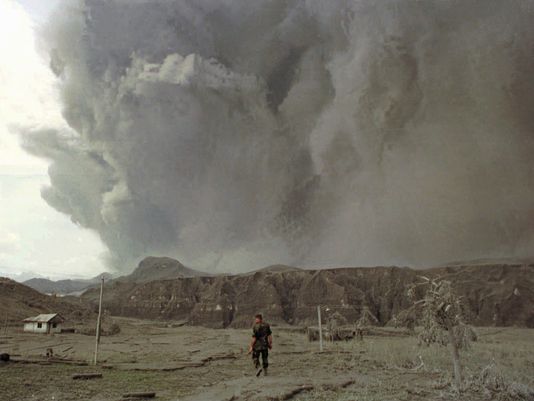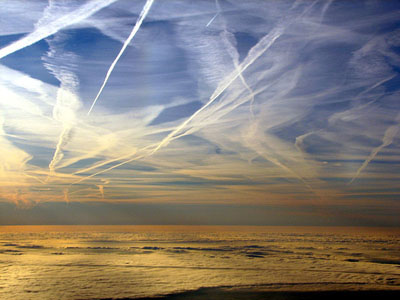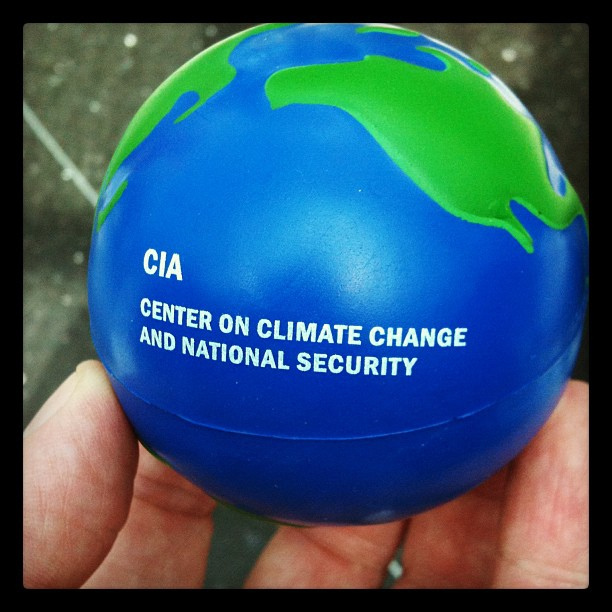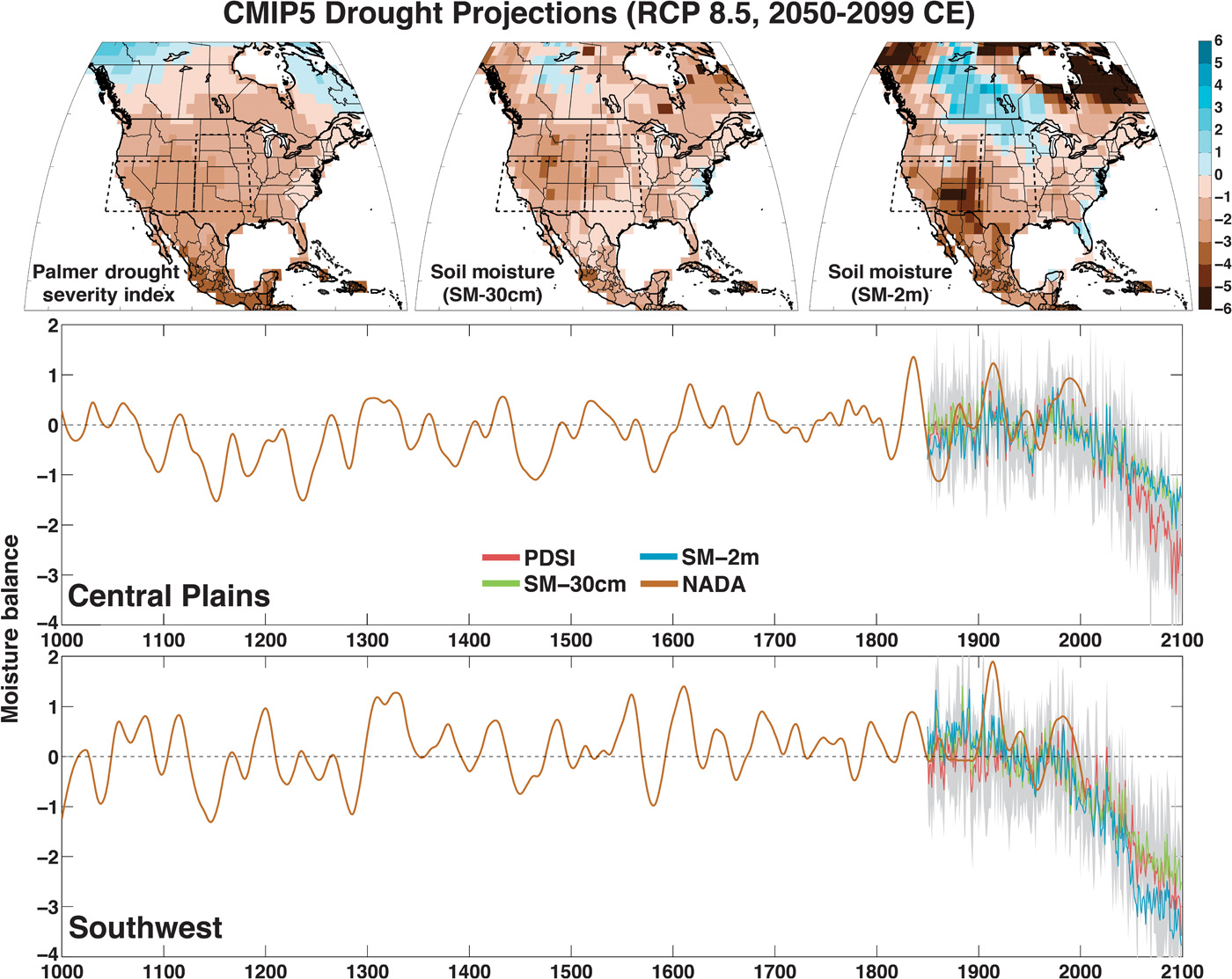
Last week, I got an email from an editor at USA Today. The email said “We’re looking for someone to … argue for geoengineering as a viable means to fight climate change”, continuing “We would need 350 words by 3 PM tomorrow afternoon.”
They said that they couldn’t show me the piece I would be responding to (!), but the main points would be:
— As the NAS panel said, geoengineering is no substitute for reducing greenhouse gas emissions, the root cause of the problem.
— Albedo modification on a global scale could have major unintended consequences.
— Carbon dioxide removal is less problematic but is probably cost prohibitive, particularly if carbon emissions remain untaxed.
— Research should continue into climate intervention only as a last-resort, if-all-else-fails option.
I responded, saying, “OK. The stuff that you are saying is stuff that I largely agree with. Nevertheless, you can argue that the glass is half empty and I can argue that the glass is half full, arguing for the potential benefits.”
They responded, saying, “OK. The more half full, the better.”
So, I set out to write a piece that would be as strong and one-sided as possible, without saying anything that I thought was false. Note that my intent was NOT to present a balanced view, but to argue a side as a lawyer might argue a case.
I gave them about 100 words more than they asked for, and they cut it down to size.
The piece by the USA Today editorial board can be found here:
http://www.usatoday.com/story/opinion/2015/02/15/climate-change-solar-geoengineering-greenhouse-gases-editorials-debates/23465849/
My piece can be found here:
http://www.usatoday.com/story/opinion/2015/02/15/megadrought-climate-change-ken-caldeira-editorials-debates/23465975/
I think what I said is true, but is not balanced.
—
I wrote an email to a friend about this:
The USA Today piece is a bit too high-pitched for my comfort level. The same thing happened with me writing OpEds for the NY Times
The media outlets want you to be as extreme and outlandish as possible because that sells copy, and they know you want to be published and say that if you are too lukewarm, we will find someone else who will say more provocative things. So you compromise and become a little more strident than you really feel comfortable with because you are an egomaniac who wants the public exposure.
UPDATE 17 FEB 2015
A few people, including my Mom, read what I wrote here the wrong way.
First, let me say that I thought the editorial handling by USA Today was great. When they edited 100 words out of my piece, they did so very professionally and did not attempt to alter my point of view.
Going in, I knew that the balance was to be provided by the two pieces together (my piece and their piece) and that this was not intended as a forum for me to have a full airing of my views but rather, in presenting contrasting views, it was meant to be something that would be both entertaining and informative to the reader.
Their piece was, I thought, good and very professionally and thoughtfully done.
We don’t know what is in other people’s minds. When I write about what I think others want of me, that likely reflects my psychology more than any objective reality. Nobody pushed me into doing anything I didn’t want to do.
My Mom got the impression that I felt somehow mistreated by the USA Today staff. That couldn’t be further from the truth. I am deeply appreciative of the opportunity they offered me. I think the two pieces together present a balanced view.
I told my Mom that she shouldn’t be concerned about me; she should be happy for me that I was given such a wonderful opportunity.
http://www.usatoday.com/story/opinion/2015/02/15/megadrought-climate-change-ken-caldeira-editorials-debates/23465975/
One known way to cool the Earth: Another view
Solar geoengineering could be fast, cheap and easy.
If current trends in greenhouse gas emissions continue, unprecedented megadroughts may plague much of the western USA, and the tropics may get so hot that widespread crop failures and famines become commonplace. There is a chance that climate change will prove truly catastrophic, with people suffering and dying in many parts of the world.
With the Earth in such a fevered state, there will be intense and irresistible pressure for politicians to do something, anything, to cool things off.
People in crisis won’t want to wait decades for carbon dioxide-polluting energy systems to be transformed. And even if emissions of all greenhouse gases were stopped suddenly, the Earth would remain hot for thousands of years. There is basically only one way known to cool the Earth rapidly.
The only thing politicians can do to cause Earth’s climate to cool within their terms in office is to reflect more of the sun’s warming rays back to space. We know this is possible because we have seen volcanoes do it. In 1991, the Mount Pinatubo eruption in the Philippines injected lots of small particles high in the atmosphere, and the next year the Earth cooled, despite the continued rise in atmospheric greenhouse gas concentrations.
A small fleet of airplanes could do what large volcanoes do — create a layer of small particles high in the atmosphere that scatters incoming sunlight back to space. Cooling the Earth this way could be fast, cheap and easy.
With the Earth in a fevered state, the pressure to put on a “solar geoengineering” ice pack could become irresistible, especially if this ice pack could potentially save millions of lives.
It is possible, of course, that sustaining the kind of aerosol layer that circled the Earth in 1991 would just make things worse. We just don’t know. We need to do the research so that if a climate catastrophe does occur, politicians will know whether turning down the heat this way can really save lives and alleviate suffering.
Ignorance is not an option. The cost of not knowing is too large. The ethical path forward is to generate the knowledge now that may be needed to save lives in the future.
Ken Caldeira is a climate scientist with the Carnegie Institution for Science at Stanford.






